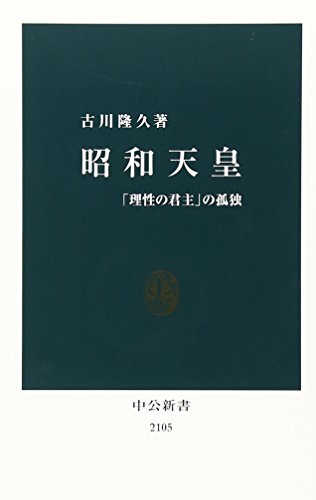137 0 0 0 田島道治文書の分析と研究―象徴天皇制形成期の天皇と宮中―
10 0 0 0 革新官僚の思想と行動
- 著者
- 古川 隆久
- 出版者
- 公益財団法人史学会
- 雑誌
- 史學雜誌 (ISSN:00182478)
- 巻号頁・発行日
- vol.99, no.4, pp.457-494, 605-606, 1990-04-20
- 被引用文献数
- 1
From 1935 to 1945 reformist bureaucrats in Japan occupied virtually the center of policy making along with a group of politically and economically concerned military officers. These bureaucrats were not only able to exert influence in the complete bottom-up process of policy formation, but also, despite little formal powers, were also able to effect decision making to a far greater extent than in the era of the political party cabinets. These reformist bureaucrats belonged to a group of government officials who had received their formal university education in the 1920's in the Marxist tradition. They rose up through the ranks in the latter half of the 1930s from personal and professional relationships in the background of building a controlled economy. They philosophically refuted both Marxism and capitalism, which they viewed as degrading the human character by the strong emphasis on materialism. Focussing their views on success in Manchuria, they stressed domestic totalism (planned economy) according to political priorities (presuming of course the existence of the monarchical [Tenno] institution), and insisted on the "East Asian (toa) bloc" as the corresponding state of affairs on the foreign front. This way of thinking was based on German totalistic thought; however, we can also discern their Marxist educational background enabling them to adopt such an ideology. In terms of concrete goals, their totalism was commonly directed towards "reform" plans geared to increasing the military strength of the army. It was for this reason that these reformist bureaucrats joined hands with politically and economically concerned military officers in policy making and political action. The practical behavior of these reformist bureaucrats, being based generally on this kind of ideology, was geared towards carrying out within such integrative offices as the Cabinet Planning Board (Kikaku-in) a radical state reorganization effort (almost impossible in peacetime) as one link in the creation of a wartime system for supporting the war in China and the Pacific War. Their efforts meet with a fair amount of success. The true intentions of the whole "reformist faction", which included these bureaucrats and embraced totalism in the wake of the German victorids on the European front, came to light during the Konoe New Organization movement of 1940 and 1941. However, the "citizens organization" plan that they were most eager to put through was not realized fully due to resistance in the National Diet. In any case, these reformist bureaucrats, as a result of giving up on both Marxist and capitalist solutions, inevitably plunged Japan into the Pacific War and continued to hold this ideology even after the War was over. While we can say on the one hand that their criticism of both Marxism and capitalism was not completely irrelevant in that it can be linked in the end to Japan's postwar high economic growth, on the other hand, it was because of their hastiness in trying to reform the present situation that they brought a great many of human and material damages in the Pacific War. Furthermore, when looking at the problem in terms of comparative history and national system theory, in the sense that it was the army officers and reformist bureaucrats who exerted real political influence through their commitment to totalist ideology, but were able to realize only a part of their goals in very gradual steps, we could call this period in Japanese history "a wartime state regime tending gradually towards totalism".
- 著者
- 古川 隆久 吉原 潤 京極 典子
- 出版者
- 横浜市立大学学術研究会
- 雑誌
- 横浜市立大学論叢 人文科学系列 (ISSN:09117717)
- 巻号頁・発行日
- vol.54, no.1, pp.395-431, 2003
- 著者
- 古川 隆久
- 出版者
- 公益財団法人史学会
- 雑誌
- 史學雜誌 (ISSN:00182478)
- 巻号頁・発行日
- vol.103, no.12, 1994-12-20
1 0 0 0 早わかり昭和史 : 時代の流れが図解でわかる!
1 0 0 0 OA 日中戦争期の前田米蔵 前田の憲政論を中心に
- 著者
- 古川 隆久
- 出版者
- 公益財団法人 史学会
- 雑誌
- 史学雑誌 (ISSN:00182478)
- 巻号頁・発行日
- vol.128, no.6, pp.1-35, 2019 (Released:2021-09-02)
立憲政友会の有力者であった前田米蔵は、5・15事件(1932年)後における政党政治批判の高まりに対し、いち早く1933年に「日本独特の立憲政治」論を主張した。日本の議会は天皇が設けたことを強調し、天皇の権威の下に議会政治、政党政治の正当化をはかったのである。 さらに前田は、貴族院議長近衛文麿を党首とする立憲政友会と立憲民政党の合同(保守合同)による近衛新党構想を進めた。近衛は議会外諸勢力の支持を得て首相候補と目されていた。前田は、二大政党による政権交代ではなく、近衛新党という、議会外の勢力とも連携する形による政党内閣の復活をはかったのである。 しかし、近衛新党が実現しないうちに1937年に第一次近衛内閣が成立し、日中戦争が勃発した。日中戦争の収拾に苦慮した近衛は、1940年6月、戦勝に向けた強力な挙国一致体制の実現のため新体制運動を開始し、7月に第二次近衛内閣を組織した。 近衛は挙国一致強化のため、新党ではなく、議会を含む各勢力の協調体制の確立をめざしていた。しかし、近衛の側近たちは全体主義的な政治変革をめざし、前田ら衆議院の主流派(旧政友会・旧民政党)は、議会勢力中心の近衛新党の実現をめざした。「日本独特の立憲政治」論によれば、挙国一致の中心はあくまで議会だったからである。 1940年10月に発足した大政翼賛会は全体主義的な色彩が強かった。前田は、近衛との信頼関係と難題処理の実績を評価されて大政翼賛会議会局長に起用された。しかし、前田をはじめ議会の大勢は翼賛会の全体主義的色彩に不満を抱いており、議会は大政翼賛会の改組や、議会弱体化政策の阻止に成功し、前田は衆議院勢力の指導的立場を保つことができた。近衛新党は実現しなかったが、政府の割拠性が続く限り、議会新党による政府の統合力回復という衆議院勢力の主張の正当性が失われることはないからであった。
- 著者
- 古川 隆久
- 出版者
- 吉川弘文館
- 雑誌
- 日本歴史 (ISSN:03869164)
- 巻号頁・発行日
- no.840, pp.39-50, 2018-05
1 0 0 0 日中戦争期の前田米蔵 : 前田の憲政論を中心に
- 著者
- 古川 隆久
- 出版者
- 史学会 ; 1889-
- 雑誌
- 史学雑誌 (ISSN:00182478)
- 巻号頁・発行日
- vol.128, no.6, pp.971-1005, 2019-06
1 0 0 0 昭和天皇 : 「理性の君主」の孤独
1 0 0 0 OA 芸術受容者の研究-観者、聴衆、観客、読者の鑑賞行動
- 著者
- 五十殿 利治 井上 理恵 渡辺 裕 上村 清雄 木下 直之 古川 隆久 京谷 啓徳 大林 のり子 阿部 由香子 日比 嘉高 寺門 臨太郎 川崎 賢子 菊池 裕子 江 みなみ
- 出版者
- 筑波大学
- 雑誌
- 基盤研究(B)
- 巻号頁・発行日
- 2008
芸術の受容者の鑑賞行動に関する史的な研究については、たとえば近代文学史におけるアンケートに基づく読者調査のような基礎的な資料を欠くところから、研究対象にどのようにアプローチするのか、学術的な方法論が問題である。これに関連して研究対象である受容者の様態を検証することも重要である。本研究においては、共同研究により、従来に顧みられなかったカメラ雑誌の月評など、資料の発掘を含めてその方法論が多様であることが明らかとなり、むしろ研究として今後十分な展開の可能性があることが明らかになった。
- 著者
- 古川 隆久
- 出版者
- 錦正社
- 雑誌
- 軍事史学 (ISSN:03868877)
- 巻号頁・発行日
- vol.44, no.2, pp.4-21, 2008-09

